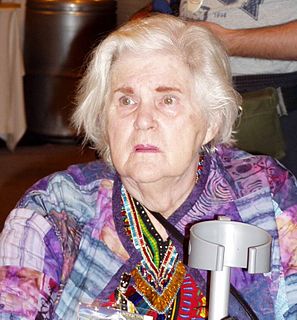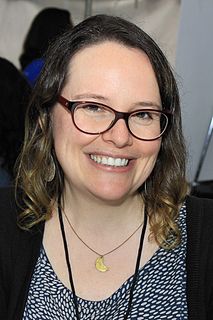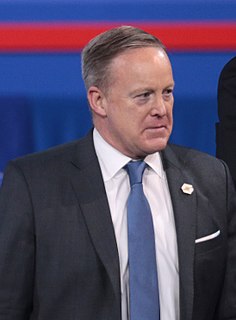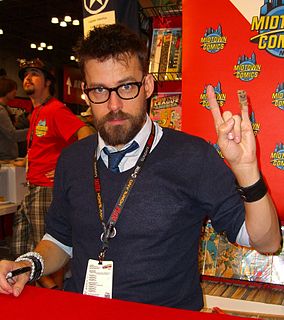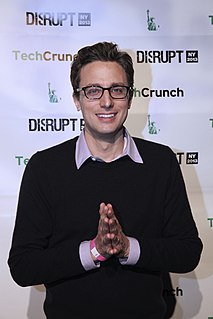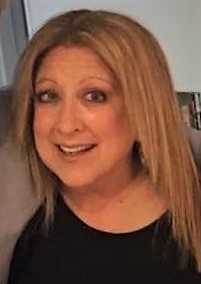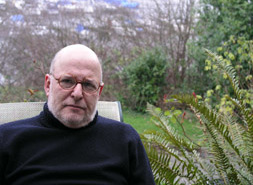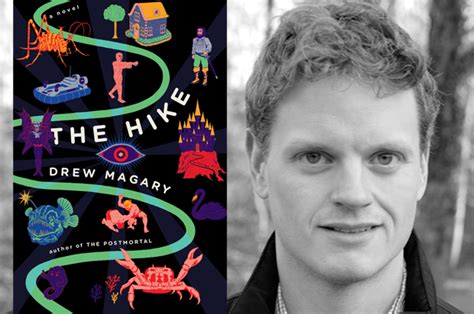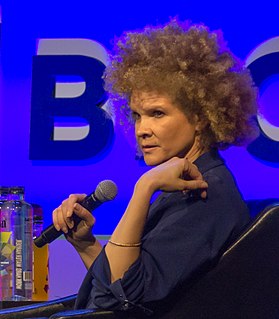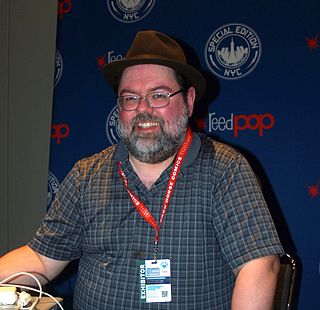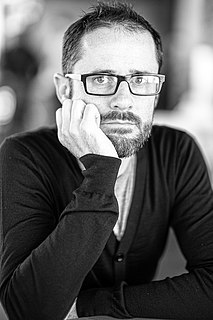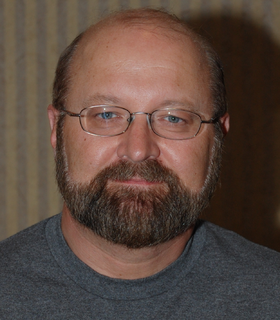Top 141 Readership Quotes & Sayings - Page 2
Explore popular Readership quotes.
Last updated on April 17, 2025.
The experience that a publication creates for its audience is the very essence of that publication's brand - and without deep engagement, that publication's brand will be weak. A good publication is a convener and an arbiter - it expresses a core narrative that becomes a badge of sorts for its readership.
I think continuity is the devil. I think it's constricting and restrictive, I think it's alienating and off-putting, and it inflicts an artifact of linear time as we experience it on something that exists outside of linear time as well as keeps new readership away by keeping comics a matter of trivia and history rather than actual stories.
More people have more access to more readers for less money than ever before in history. It means a lot of dross; but it means a lot of very talented people can find and nurture a readership in ways that were not possible twenty years ago. From a creative perspective, that is all that writing is about.
It used to be, if you wanted to have a strong, influential voice in the feminist movement, you really needed to be part of this New York/D.C. elite group of feminists, or part of a mainstream feminist organization. And now it's kind of an amazing thing that you can just start a blog and put your voice out there and build your readership.
A lot of people who want to see the short story have a renaissance of readership - they tend to think of short stories, and sometimes poems too, as being well-suited to the way we now live, with all of these broken-up bits of time. I hope they're right, but my sense is that our fiction reading has become, if anything, more cherished as a kind of escape from fragmentation.
Peggy Noonan is not as good a columnist as my colleague Kathleen Parker, in my opinion, but they share something related to their Pulitzers. Kathleen won in in 2010. They won it for a similar reason. They broke from their crowd, and sprinted away. They delivered the politically unexpected take, at some peril to their readership.
MAD FREE is simply described as "Liberating Conversations with Revolutionary Women about Beauty, Image and Power". It began as a Salon series in NY loft in Brooklyn as a salve to my broken heart after Honey Magazine folded. It was not because of the readership or because the market wasn't there; the company that held it collapsed, which I was the last editor in chief of.
I certainly want people to read what I've written. Yet, and here's that question of economic position, because I have a secure job, I don't need a wide readership to survive. I'm a participant in the indirect economy, what sociological critic Pierre Bourdieu would call the "economic world reversed." I get "paid" by writing whatever I choose. That's a pretty good position to be in, but I don't pretend for a moment that it is not a privileged one.
As someone who writes and teaches YA fiction, I spend a lot of time trying to define its character and readership, and I don't think I'm alone - genres are all about boundary drawing, and the YA genre is, in a lot of ways, about carving out boundaries around adolescence, a space for teenagers to do teenage things.
The thing that makes stories memorable is the experiences they impart onto the readership and the emotions that they make those readers feel. The audience will forgive an incredible amount if you deliver them a powerful emotional experience - and, conversely, if your story is emotionally false, no amount of pyrotechnics will save it.
I'd like to emphasize that when a reader finishes a great novel, he will immediately begin looking for another. If someone loves your book, it increases the chance that he or she will look at mine. So there is no competition between writers. Another writer's success helps build a larger readership for all of us.
You have to find a way of shutting the future out and focusing on the writing. One of the problems I'll have with writing my second book is getting back into a situation where I think about the words on the page rather than the publishing industry, or success, or any kind of readership I may now have. I'll have to do what writers do, which is focus on the story and nothing else.
Starting the blog was a way for me to generate this nonfiction first-person voice naturally, gradually, without feeling performance anxiety. It felt a bit like keeping journals when I was younger, but connecting to an instant readership without having to wait for publication made it also immediately satisfying.







